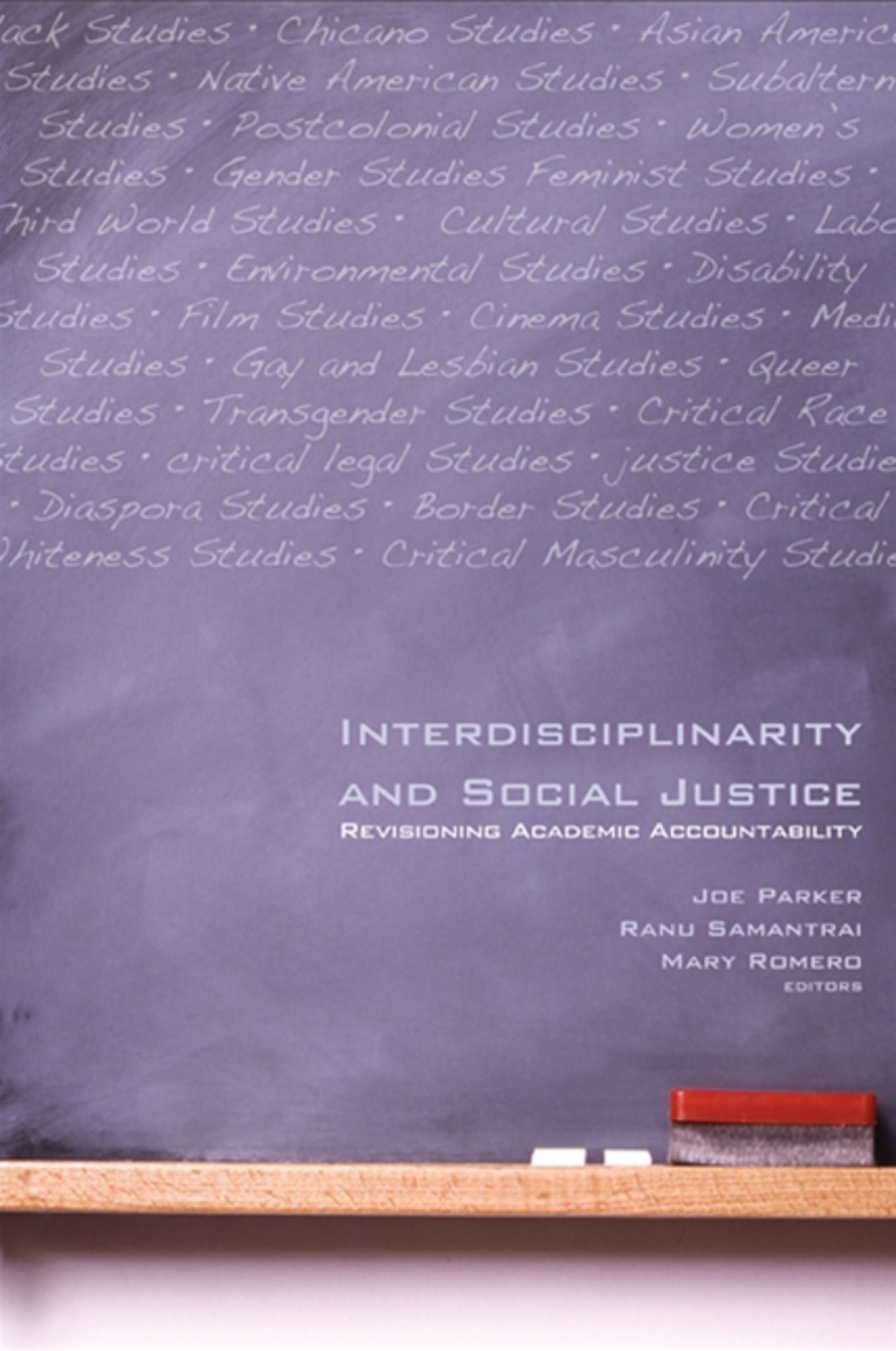We're sorry. An error has occurred
Please cancel or retry.
Interdisciplinarity and Social Justice

Some error occured while loading the Quick View. Please close the Quick View and try reloading the page.
Couldn't load pickup availability
- Format:
-
29 April 2010

Considers the past, present, and future of interdisciplinary fields motivated by concerns for social justice.
In the 1960s and 1970s, activists who focused on the academy as a key site for fostering social change began by querying the assumptions of the traditional disciplines and transforming their curricula, putting into place women's and ethnic studies programs that changed both the subject and methods of scholarship. The pattern of scholars and activists joining forces to open fields of research and teaching continued in subsequent decades, and recent additions, including critical race studies, queer studies, cultural studies, and postcolonial studies, take as their epistemological foundation the inherently political nature of all knowledge production. Interdisciplinarity and Social Justice seizes this opportune moment in the history of interdisciplinary fields to review their effects on our intellectual and political landscape, to evaluate their ability to deliver promised social benefits, and to consider their futures. The essays collected in this volume detail histories of the interdisciplinary fields that emerged from social movements, examine how effectively they have achieved their goals of intellectual and social change, and consider the challenges they now face inside and outside the academy.


<br/> 4. Whiteness in a Red Room: Telling Stories and Legal Discourse in the Tribal Courtroom<br/> <i>Raquel Montoya-Lewis </i></p><p> 5. An Emergent Extra-Disciplinarity: Worlding Arabs, Activist Representation, and the Example of Ahdaf Soueif<br/> <i>Mrinalini Chakravorty</i></p><p> II. Critiques of Interdisciplinary Fields</p><p> 6. Cultural Studies: Justice, Values, and Social Class<br/> <i>Patrick Brantlinger</i></p><p> 7. The Other Inters: Augmenting Academic Disciplinarity to Make Things (Happen)<br/> <i>Alexandra Juhasz </i></p><p> 8. The Ethico-politics of Dedisciplinary Practices<br/> <i>Joe Parker </i></p><p> 9. The Limits of Interdisciplinarity: The Case of Chicano Studies<br/> <i>Michael Soldatenko</i></p><p> III. Interdisciplinary Claims to Social Justice</p><p> 10. Whiteness Studies and the Paradox of Particularity<br/> <i>Robyn Wiegman</i> </p><p> 11. Interdisciplinarity: A Consideration from African American Studies<br/> <i>Lindon Barrett </i></p><p> 12. Imagined Immunities: Border Rhetorics and the Ethos of <i>Sans Fronti</i>è<i>risme</i><br/> <i>D. Robert DeChaine</i></p><p> 13. Toward Collaborative Coalitions: From Internationalism to Interdisciplinarity<br/> <i>Leila Neti</i></p><p> 14. Interdisciplinary Investigations and Cross-Sector Interventions<br/> <i>Ellen Messer-Davidow </i></p><p> 15. Accounting for Interdisciplinarity<br/> <i>Miranda Joseph</i></p><p> Afterword: Justice Without Truth?<br/> <i>Ranu Samantrai</i></p><p> List of Contributors<br/> Index</p>



